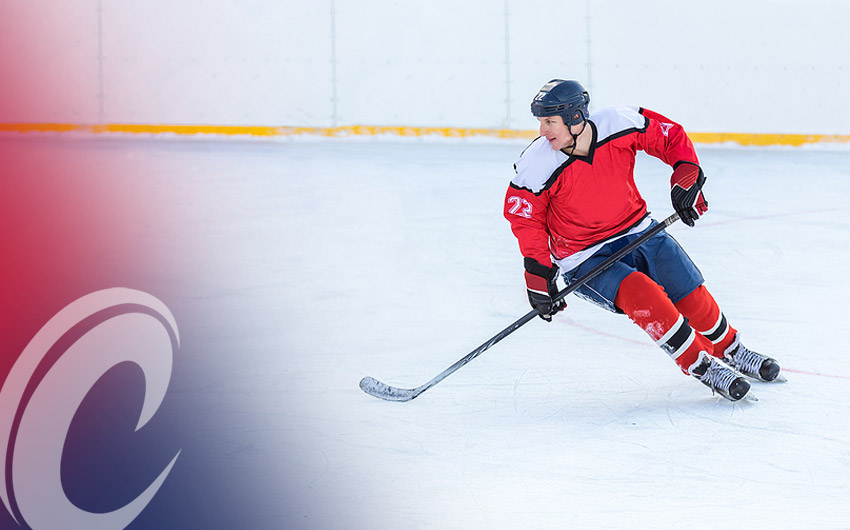As the hockey season begins to wind down, every game becomes more and more important. The tail end of the season can include tournaments, showcases and playoffs where teams may have to play multiple games on the same day or weekend. These busy weekends can take a toll on a players body, causing fatigue and soreness that can lead to decreased performance on the ice as well as injuries. A quality off-ice training program includes stretching and cool down exercises at the end of the session to decrease muscle soreness and improve flexibility, but many athletes do not perform these same exercises following practices or games. Leaving these recovery techniques out after being on the ice can be detrimental to the athlete sometimes leaving the athlete with increased muscle soreness and limited flexibility again which all lead to decreased performance and increased incidence of injury.
A simple program following practice and games that includes cool down exercises, massage, flexibility and mobility movements and nutrition can lead to quicker recovery time, so an athlete is better prepared for the next event. This program does not have to take a long time or need a lot of equipment. A quality program can be done in approximately 15 minutes and all that is needed is some space and a foam roll, lacrosse ball or another self-massage type of equipment.
The following is a sample program of what can be done following a game or practice.
- 5 minute light jog to cool down
- Using a foam roll or lacrosse ball, roll back and forth 10 times each way massaging the following muscle groups: glutes, IT Bands, quadriceps, hip flexors, calves and groins
- Static stretching of 15-30 seconds on each side of the following muscle groups: glutes, hamstrings, groins, hip flexors and calves
- Ingest some sort of protein source such as a shake or bar that contains approximately 200-300 calories and 15-25g of protein within 30 minutes of the end of the activity. These numbers will vary based on the size of the athlete
- Eat a well-balanced meal within two hours of the end of the activity
Chris Phillips is an Athletic Trainer and Strength and Conditioning Specialist with over 20 years of experience in professional sports. Chris was the Head Athletic Trainer for the Mighty Ducks of Anaheim during their run to the Stanley Cup Finals in 2003 and can be reached at chris@competeperformance.com

